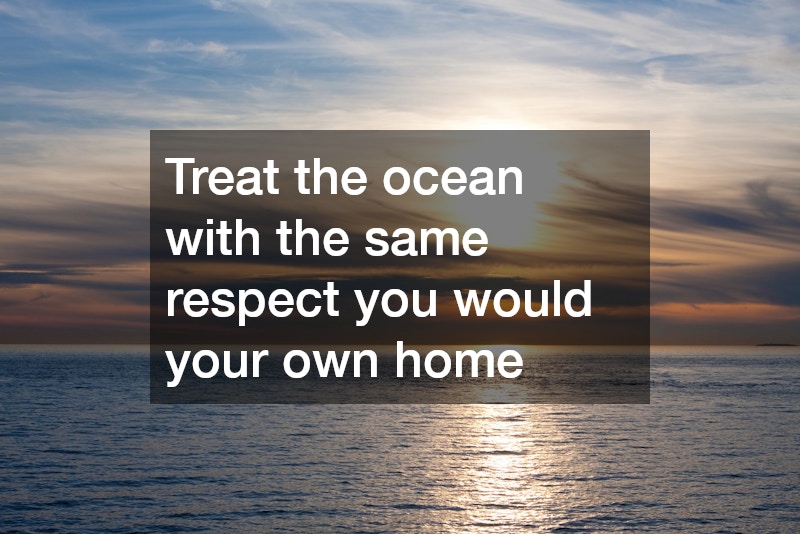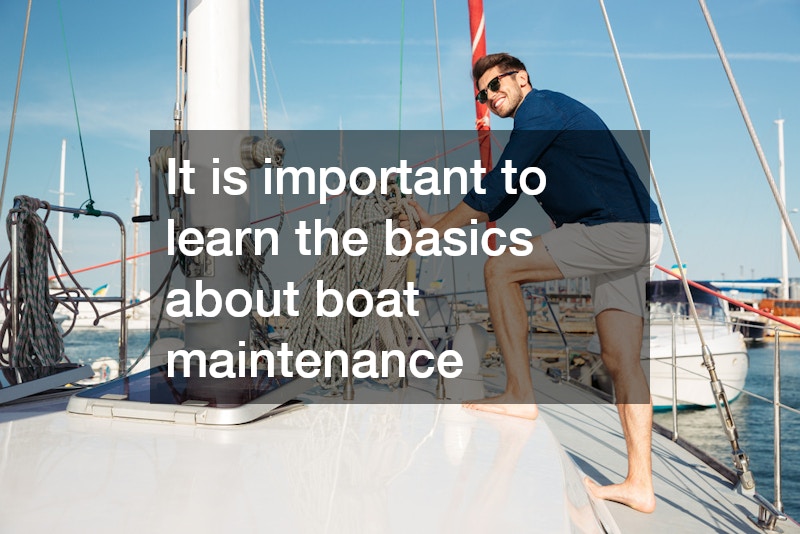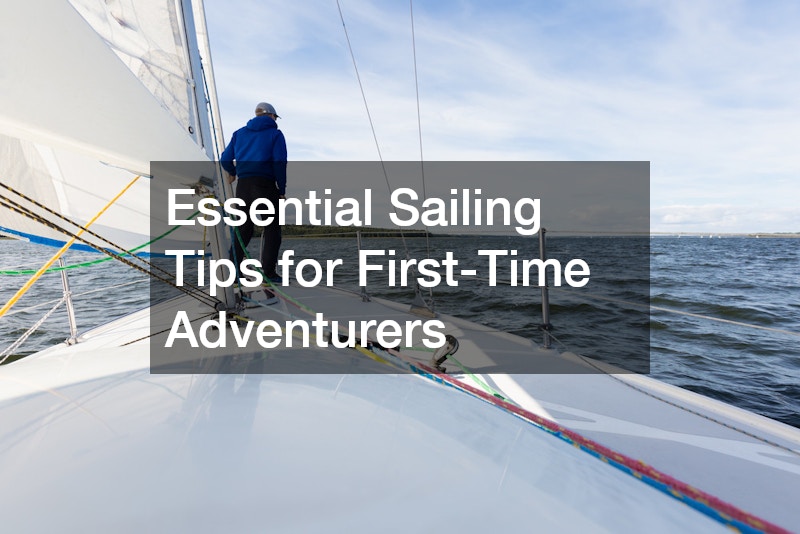It can be intimidating to set sail for the very first time. The first time you sail can be exciting, but it’s also intimidating. This article will help you whether you want to glide across the sea in style or try something new. Here are some tips to help beginners get the most out of their sailing trip. We’ll help you with everything from picking the right boat to learning the basics of navigation. We’ll keep things simple and to the point – no fancy jargon. The goal is for you to trim the sails confidently, not with your head scratched. Grab your life jacket; adventure awaits!
Bring a First-Aid Kit
You’ll thank yourself later if you leave the dock with an emergency first-aid kit. Imagine yourself on your first voyage. The sun is shining, the sea is crystal clear and you cut your finger trying to learn how to tie a sailor’s knot. This is not what you expected. This is where the handy first-aid kit in your bathroom cabinet can come into play. Make sure it has all the essentials: bandages, antiseptic wipes, pain relievers, seasickness remedies and other medications. It’s better to be prepared and not need anything than to be in a hurry and need something.
Do not just throw any old box in the bathroom cabinet. Don’t forget your own needs. Have you got allergies? Antihistamines can help. Are you prone to headaches when the waves begin to rock the boat? Be sure to have your painkillers on hand. Our health can be unpredictable at times, just like the sea. It’s not just thoughtful, but also smart to customise your kit for everyone on board. You’re like having your own little health guardian.
It’s important to know how to use your first-aid kit. Have you ever had to read those tiny instructions when in a hurry? It’s not much fun. Take a few moments with your crew before you leave to familiarise yourself with the contents. You could even play out a few ‘What-if’ scenarios. You’ll feel much better knowing that you are prepared for anything the sea throws your way. It’s also a good way to get to know fellow sailors ahead of the adventure. Confidence to set sail on the open ocean? Being prepared is the first step to achieving this goal.
Don’t Litter

When you’re out on the water, it’s easy to get caught up in the beauty of your surroundings, the vast ocean, and the crisp sea breeze. However, one thing that can quickly ruin the experience is litter. The sight of a plastic bottle floating or a plastic bag drifting along the current can be jarring, turning a serene moment into one of frustration. As you sail, treat the ocean with the same respect you would your own home. It’s simple: no littering. Keeping the waters clean is essential for both the environment and your enjoyment.
The impact of littering goes far beyond the immediate aesthetics. Disposing of waste irresponsibly in the ocean can be deadly for marine life. Sea creatures can mistake plastic bags for jellyfish or get entangled in discarded fishing nets. The consequences of carelessly tossing something overboard can have far-reaching effects on the ecosystem, which many sailors, especially beginners, may not fully realise. A clean sea is not only a safer space for wildlife but also a more enjoyable one for you as you sail across it.
Being proactive about waste management is a simple yet meaningful way to contribute to preserving the ocean. It’s incredibly easy to bring along a bag to collect your rubbish and keep it with you until you return to shore. In fact, why not go a step further? While sailing, you could collect any visible trash floating on the water. Not only does this help maintain a cleaner environment, but it also fosters a sense of pride and responsibility. Whether you call it good karma or sailor’s honour, cleaning up as you go makes your sailing journey all the more rewarding.
Only Bring Essentials
When embarking on your first sailing trip, it’s crucial to pack light and focus on the essentials. As tempting as it might be to pack everything “just in case,” you’ll quickly realise that excess baggage is more of a hindrance than a help. Novice sailors often overestimate what they’ll actually need, but in reality, there’s only a handful of items that are truly indispensable when out at sea. Keep in mind, essentials don’t have to be boring or basic—they’re simply the items that serve a clear purpose and will enhance your experience on the water.
Heavy, bulky items like wooden crates or excessive clothing are not only unnecessary, they take up valuable space and weight. Instead, opt for compact, versatile gear that can be used in multiple ways. A waterproof backpack is a perfect example. Not only will it keep your belongings dry during your journey, but it can double as a pillow during those restful moments under the stars. Versatility is key when you’re limited in space, so look for items that offer more than one function.
For instance, a durable water bottle isn’t just for hydration; it can also serve as an emergency buoy if dropped overboard. Similarly, a compact multi-tool can be used for a range of tasks, from making repairs to preparing meals. The goal is to have everything you need without cluttering your boat with unnecessary gear. By packing thoughtfully and focusing on multi-purpose items, you’ll ensure a more comfortable, streamlined, and enjoyable sailing adventure.
You Can Have an Extra Energy Source
It’s not just a smart idea to have a reliable source of extra energy onboard; it’s also a no-brainer. You don’t want to be left in the dark when you are miles from a gas station. Most people immediately think about gas to cook and heat their homes, but there are other options that can save you, especially if you’re a beginner at sailing.
Solar chargers can be a real lifesaver for those who spend long periods of time in the sun. Solar chargers aren’t just for your phone or camera. You can use the sun to charge some of your essential boat gadgets, ensuring you are never in the dark. Don’t worry if they’re too bulky. Solar chargers today are compact and lightweight, so they can easily be slipped into your luggage.
Discover the Best Shoreline Spots
It’s not just about taking a few pictures or looking at the local landmark, especially if you’re going on a sailing trip for beginners. The adventure, stories, and memories are what matter. You’re about to enter a whole new world when you dock and walk onto the shore. There’s more to the world than just typical tourist traps. There are hidden beaches you haven’t heard of or seen on a map. You can also find secluded coves and charming little towns where the locals are the most friendly.
Ask around for suggestions. Ask around. You’ll be told where to find the perfect sunrise or the quiet beach, where sea turtles nest. These little encounters and gems make a vacation unforgettable. Don’t forget about those monuments that are off the beaten track. Sometimes, history can be found at the most unexpected places. It’s not only about the destination, but also the journey and surprises along the route. Who knows what you might discover if you keep an open mind? Who knows, you might discover your new favourite beach.
Prioritise Maintenance

You should always keep your boat in top condition when you are planning a sailing trip for beginners. Imagine you are sailing out on the open ocean and a problem occurs because of a lack of maintenance. It’s not cool, is it? Finding a reliable mechanic is at the top of your list. They are the unsung heroes in sailing. These folks are like the unsung heroes of sailing.
It’s no longer just about the routine. Also, you want to get your hands dirty. You get my meaning. It is important to learn the basics about boat maintenance. Prevention is key. You can avoid a lot of headaches by checking for cracks in the hull or making sure your sails are well maintained. Don’t forget your emergency gear. It’s impossible to look like a beginner if you’re not wearing the right safety equipment.
Safety First
There is no doubt that safety should always be the first priority. Think of planning sailing trips as the ultimate adventure, but with a safety-net underneath. Imagine talking to a personal injury lawyer before you set sail. It sounds pretty intense, doesn’t it? Hey, they would tell you how important it is to be prepared for everything. You don’t have to expect the worst, but you do need to be prepared so that you can enjoy your trip.
Imagine yourself miles away from the shore. The sun is setting and all is peaceful. It would be important to remember to bring essential safety equipment. You would want to relax knowing that you have everything covered. There’s not much that a personal injury lawyer can do in the middle of the ocean. It’s a good idea to invest in a safety course. You’ll learn how to handle minor injuries and make distress calls. It’s also a great way to learn new tricks and meet other sailing beginners.
Prepare for Bad Weather
When you plan to go on an adventure offshore, you can’t ignore the weather. The weather is unpredictable and can change faster than you could say “waterproofing company”. The skies suddenly darken as you’re enjoying your first sailing trip for beginners. Talking to a waterproofing company is a great way to make a difference. You’ll get the best gear for keeping you and your valuables dry no matter what Poseidon can throw at you.
It’s not all about staying dry. It takes some knowledge to navigate bad weather. It’s important to keep an eye on the weather forecasts. It’s not enough to just glance at the forecast. Look into the updates. Use everything: apps, websites and old-fashioned radio. Your knowledge is as important as your sailing abilities.
Boat Basics: Learn the Basics
Before you set sail, it is important to get familiar with your boat. Imagine driving a car with no idea where the brakes were. It’s the same with sailing. It would be a shame to be on the water and not know how to navigate it. You could call a handyman to fix a hole you accidentally made in a wall. Sure, they can fix it but wouldn’t it be better if it was never there in the first place?
It’s not enough to know what each part does on the boat. It’s about knowing the rhythm of the boat and how it responds when you give commands. You also need to know what it feels like if everything is running smoothly. Imagine that you are a novice on your first sailing trip, and know your boat as well as you do your own hand. This confidence? It’s unbeatable.
Keep Pests Out of Your Boat
Pests are a problem that you may not have expected, but they’re a part of boating. Uninvited visitors are the last thing that you want when you’re enjoying your sailing trip for beginners. It’s not just the in-laws who show up unannounced. These pests can be sneaky and cause problems if you are not careful. Call a pest-control service to take care of this.
It’s not just about keeping the critters away, but also about your own sanity. Imagine sailing, with the sun shining and the water sparkling, only to see ants marching toward your picnic. You may even hear tiny feet scurrying in the dark. Cockroaches? Mice? It’s like something out of a horror movie.
Final Thoughts
This article concludes by saying that sailing trips are a unique and exhilarating experience for beginners, but there are also challenges. From learning the ins and outs of your boat to keeping unwanted critters away, it’s all a part of the adventure. You’ll learn, too, that nothing beats the excitement of your first sailing trip out on the sea. It’s not only about avoiding hazards, but also about having fun. With a little preparation and the right attitude, you will find the freedom of sailing unlike anything else. Let’s wish you a sailing trip filled with clear skies and calm seas. There’s no feeling quite like conquering the waves with confidence, is there?

